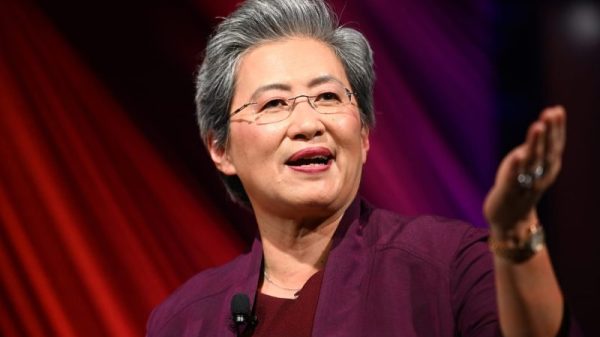(Reuters) – Chinese startups are increasingly struggling with demands from early-stage venture capitalists to return their investment or face lawsuits, after failing to provide an exit via a market listing within an agreed time frame, industry executives said.
Startups worldwide often agree redemption rights allowing private equity and venture capital investors to ask for their money back along with a premium if targets such as an initial public offering are not met.
In China, however, a near freezing of the IPO market this year and declining sources of capital in an economy hobbled by a property crisis and struggling for growth has given rise to reimbursement requests, threatening many startups’ existence, executives said.
The situation conflicts with the government’s resolve to foster innovation and achieve technological self-reliance in systemically important industries to insulate the country from the impact of geopolitics.
In response, one initiative is to promote “patient capital” over the rush for quick profit.
Still, exits through redemption nearly tripled to 641 in 2023, showed data from consultancy Zero2IPO. The number jumped 68% in January-September versus the same period last year.
Over that time, regulators tightened scrutiny of the IPO process, prompting firms to scrap listing plans in droves.
Redemption-related disputes have also surged as startups and their founders have no money to return, lawyers said.
About 14,000 Chinese startups are currently at risk of investors exercising redemption rights, involving as much as 8.6 trillion yuan ($1.2 trillion) worth of investment, law firm Lifeng Partners estimated.
“There has been a notable rise in redemption cases due to changes in the market environment and heightened exit pressure,” said Huang Jiri, a partner at Hylands Law Firm in Shanghai. Most of these cases were triggered by startups failing to go public by a pre-agreed date, Huang said.
RESPONSIBILITY
A sputtering economy has left venture capitalists under pressure to return money to their own investors, so they are exercising redemption rights even at the cost of pushing startups and their founders to the brink, industry sources said.
In China, redemption is the responsibility of founders whereas elsewhere it is often the responsibility of the startup.
In one case, investor Luxin Capital sued the controlling shareholder of startup Shandong Inlarin Technology, Peng Hongyue. Luxin Capital, in its disclosure, said Peng had failed to honour a commitment to buy back its stake.
Their agreed redemption terms included the failure to conduct an IPO, Inlarin Technology said in a July statement in which it also revealed a local court had frozen Peng’s property.
“I understand it (the clause) was for this (particular) investment at the time. The company was really doing well back then,” said board secretary Ma Xiaonan at Inlarin Technology.
“If it hadn’t been for the three-year pandemic, we might really be on the Beijing Stock Exchange by now,” Ma said. A slump in the construction industry in which the firm operates also precipitated a severe decline in business volume, he said.
Neither Luxin Capital nor Peng could be reached for comment.
DISAPPEARANCE
A booming economy and buoyant IPO market meant redemption rights were rarely exercised in China before the pandemic.
However, post-pandemic economic sluggishness has since combined with a withdrawal of U.S. dollar funds due to geopolitical tension as well as bleak IPO prospects at home and abroad due to heightened market volatility.
In August last year, Zibo Tianheng New Nanomaterials Technology said failure to conduct an IPO by the end of 2023 could trigger redemption requests from investors Luxin Capital and Zibo Hightech Venture Capital.
In March, it said it could not reach founder Wang Bo and that his bank accounts and main assets had been frozen.
Neither Zibo Tianheng nor Wang Bo could be reached for comment.
“As an entrepreneur, if you’re confident enough, you could choose not to sign a buyback agreement,” said Andrew Qian, chairman and CEO of New Access Capital, a Shanghai-based investment and financial advisory firm.
“But if you disagree with buybacks, in all likelihood, you may struggle to find investors.”
PRECAUTIONS
For venture capitalists, returning money to their own investors must take precedence over the survival of a startup from which they are entitled to a full refund with interest.
“Redemption rights are often agreed merely for procedural compliance to avoid liability,” said a director of a state-owned investment group, declining to be identified due to the sensitivity of the matter.
“State-owned funds face all kinds of audits and inspection,” the director said. “We empathise with the companies but we cannot avoid the scrutiny we are under.”
To promote sector growth, the government plans to introduce “fault tolerance” for state-backed venture capitalists.
Redemption rights are necessary to protect venture capitalists from immature, capricious and even corrupt entrepreneurs, said Greater Filter Venture partner Tom Jing. “Some entrepreneurs change their minds quickly. A biotech boss may swerve into the chemicals business; others could be involved in patent infringement; some even put investors’ money to wasteful use,” Jing said.
“As an investor, you need to take precautions.”

































